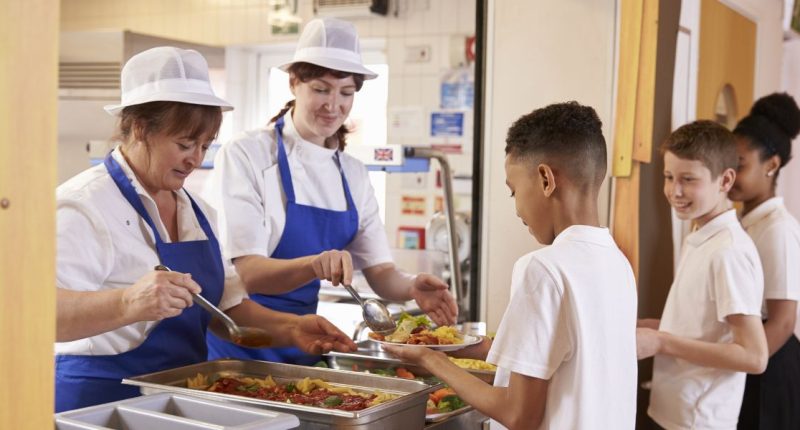Schools in Rio de Janeiro have banned ultra-processed food and put classic Brazilian fruits and vegetables firmly back on the menu as the city strives to reduce rates of childhood obesity.
School cafeterias have been targeted by the city’s officials in the face of a childhood obesity “epidemic”, with almost one-third of children classed as obese in Brazil.
Experts say that children are eating too much ultra-processed food, leading to both obesity and malnutrition which affects attention span and learning capacity.
- Appetite traits in childhood linked to eating disorders in teen years
- Type 2 diabetes, high blood pressure and obesity triggered by childhood stress
- Energy drinks associated with childhood depression and heart problems
Marluce Fortunato, nutritionist for the Rio city government, said: “Childhood obesity is an epidemic, not just in Brazil, but worldwide.
“It’s easier to educate young children. Once a person’s way of thinking is set, it’s a challenge to introduce new concepts.”
City leaders have banned ultra-processed food including snacks and cookies containing additives. Instead, students are being served up traditional Brazilian fruits and vegetables, such as yams, okra and persimmons. For many, it is the first time they have tried such items.
Health experts have warned that the ingredients in ultra-processed food are designed to “addict the tastebuds” and are cheaper to buy, making them very attractive.
Paediatrician Daniel Becker said: “Science has shown these products are very detrimental to our health and are responsible for 70% of chronic diseases worldwide.”
Nationally, a campaign has been launched with the help of celebrities to spread the word about the dangers of ultra-processed food.
The campaign, called ‘doce veneno’ or ‘sweet poison’, is putting pressure on the government to introduce a tax on ultra-processed food and use the money generated to fund healthier options.
- Cooking lessons in schools an important contribution to children’s healthy eating as they grow up
- Childhood asthma triggered by pollutant levels from gas cookers
- UK-first kidney transplant given to child to remove the need of life-long drugs
For one grandmother, 60-year-old Vera Lucia Perreira, it is not too late to start eating healthily, as she has recently discovered a love of organic fruit and vegetables.
She said: “It’s hard to change, but that doesn’t mean people have to be prisoners of their ideas. We have to open their minds to look differently at food, for the sake of our future.”
However, the campaign is not popular with everyone, with reports of parents complaining that children are now asking for more expensive, healthier food at home.
Research by the Desiderata Institute found that more than 80% of children and young people aged from five to 19 reported that they had eaten at least one item of ultra-processed food the day before.




